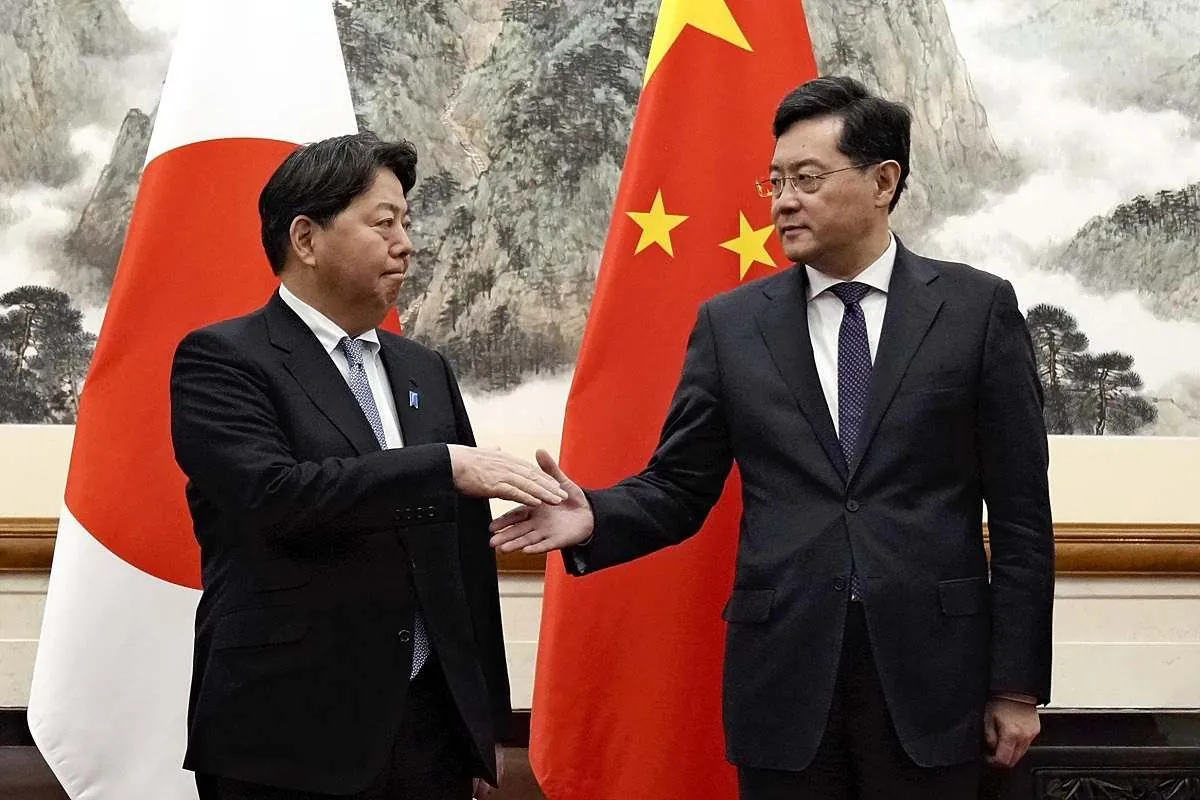Yoko Kamikawa, Japan's Foreign Minister, is set to convene with her Chinese counterpart, Wang Yi, in New York on September 25, 2024. This high-level diplomatic engagement comes at a crucial time, as Japan grapples with mounting safety concerns for its citizens residing in China.
The meeting, scheduled to take place on the sidelines of the United Nations General Assembly, will primarily focus on enhancing security measures for Japanese nationals in China. This comes in the wake of a tragic incident in mid-September 2024, where a Japanese schoolchild lost their life in a stabbing attack in Shenzhen, a major economic hub in southern China.
This recent tragedy is not an isolated event. It follows another assault near a Japanese educational facility in China earlier in 2024, underscoring a worrying trend of safety issues for Japanese expatriates. These incidents have sent shockwaves through the Japanese community in China, which numbers over 33,000 as of 2022.
In response to these security challenges, several Japanese companies operating in China have offered to repatriate their staff and families. This development highlights the growing unease among Japanese nationals and could potentially impact the substantial economic ties between the two nations. It's worth noting that China remains Japan's largest trading partner, despite ongoing diplomatic tensions.
The scheduled meeting between Kamikawa and Wang is significant not only for addressing immediate security concerns but also in the broader context of Japan-China relations. The two countries have a complex history, with diplomatic ties normalized in 1972 and the Treaty of Peace and Friendship signed in 1978. However, several issues continue to strain their relationship, including territorial disputes over the Senkaku Islands and the East China Sea gas fields.
Japan's approach to this diplomatic engagement is likely to be influenced by its pacifist constitution, which renounces war and the use of force in international disputes. This principle has guided Japan's foreign policy since the end of World War II, even as it navigates complex regional dynamics.
The meeting also occurs against the backdrop of broader geopolitical considerations. Both Japan and China are key players in regional economic initiatives, such as the Regional Comprehensive Economic Partnership (RCEP) and the ASEAN+3 grouping. However, China's Belt and Road Initiative has been a source of both cooperation and tension with Japan.
As the foreign ministers convene, they will need to balance addressing immediate security concerns with the long-term strategic interests of their respective nations. The outcome of this meeting could have significant implications for the safety of Japanese nationals in China, bilateral relations, and regional stability in East Asia.
"The safety and security of Japanese citizens abroad is our utmost priority. We will engage in constructive dialogue with our Chinese counterparts to address recent incidents and strengthen protective measures for our nationals in China."
This diplomatic engagement underscores the delicate balance that both nations must maintain. While economic interdependence necessitates cooperation, issues such as territorial disputes, historical grievances, and now, the safety of foreign nationals, continue to challenge the relationship between these two East Asian powers.
As Japan and China navigate these complex issues, the international community will be watching closely. The results of this high-level meeting could set the tone for future interactions and potentially pave the way for enhanced cooperation in ensuring the safety of foreign nationals and addressing broader regional concerns.
